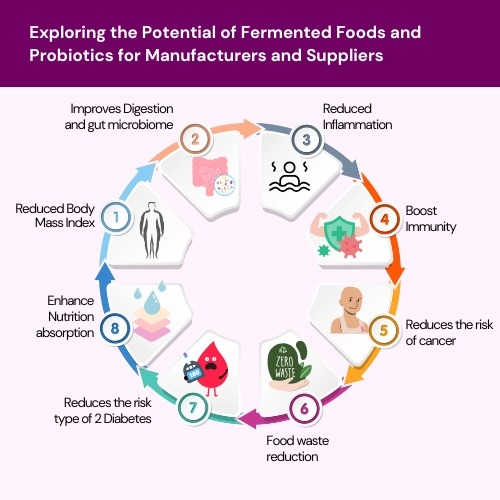Future Perspectives for Probiotic Products
The demand for immunity-boosting supplements post-COVID-19 has accelerated interest in probiotics. However, manufacturers need to prioritize:
- Health and Safety: Selecting strains with proven safety profiles and human origin.
- Regulatory Compliance: Adhering to country-specific guidelines for product claims and trials.
- Strain-Specific Research: Identifying strains with robust technical properties to ensure efficacy in food applications.






